GET IN TOUCH
- Please wait...

Introducing “What LightCastle Has Read in 2023” – a brand new edition of our annual tradition of sharing the diverse books that have fueled our team’s intellectual curiosity over the past year. From insightful non-fiction to captivating fiction, each title reflects our shared dedication to growth, development, and a knowledge-driven work culture. As we navigate a dynamic world, these books have not only shaped our thinking but have also inspired innovation. Join us in celebrating LightCastle’s collective spirit of pursuing knowledge, grappling with complex ideas, and unlocking fresh insights.
Author: Ethan M. Rasiel and Paul N. Friga
Reviewed by: Samiha Anwar, Business Consultant
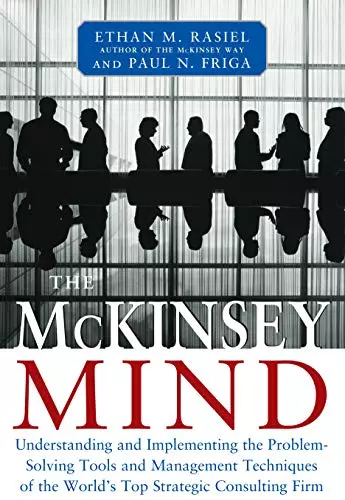
The McKinsey Mind provides insights into the problem-solving and decision-making methodologies used by McKinsey & Company, a renowned global management consulting firm. It delves into the McKinsey problem-solving frameworks, emphasizing structured thinking, logical analysis, and effective communication as essential skills for successful consultants.
I thoroughly enjoyed the book for its detailed and step-by-step approach to utilizing McKinsey tools and strategies for solving core business problems. The book’s seamless integration with real-world examples, parables, and practical exercises added depth to the learning experience. This book offered me a valuable understanding of the problem-solving approaches employed by McKinsey. Furthermore, combining theory and hands-on exercises made the concepts more accessible, contributing to a more enriching and applicable read.
My top three takeaways from this book are:
Author: Tahmima Anam
Reviewed by: Naziba Ali, Trainee Consultant
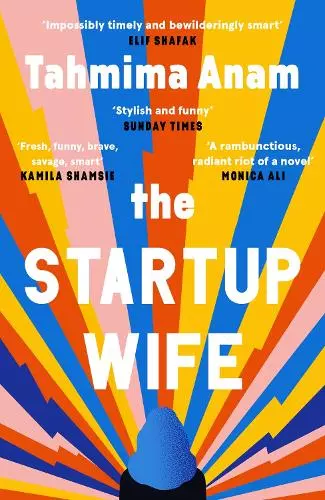
“The Startup Wife” dives into the whirlwind world of tech startups, focusing on Asha, a brilliant coder who co-founded an AI-powered social platform with her husband Cyrus. Despite their joint effort to develop personalized ceremonies for the non-religious, Cyrus’s charm and white privilege take center stage, revealing the industry’s glaring gender biases and racism. The book explores their shifting personal and professional dynamics, boardroom sexism, and the ethical gray areas of technology.
This novel successfully combines elements of modern romance with a compelling narrative of female empowerment. We are so used to reading stories of women forced to make decisions to appease their families, so it was refreshing to see Asha’s mother encouraging her to choose herself in a way that South Asian parents are rarely depicted. Besides, the decision to base the social media app on faith adds an intriguing dimension. Last but not least, the protagonist’s identity as a Bangladeshi American and Muslim woman is skillfully portrayed – Asha emboldens the ideal of the young, passionate, and smart Asian American; a trailblazer whose several identities only strengthen her character.
In the tech realm, there seems to be a prevalent notion of the male visionary, especially evident when male founders seek funding from VCs. The book highlights a firm that allocates only 5% of its funding to businesses led by “minority women.”
“I gave him power over me. I gave him all the privilege in the world so that he could turn around and mess me up.” Asha fumes. Imposter syndrome is why Asha doesn’t take her rightful place at the helm of WAI, and instead pushes Cyrus to become CEO.”
Author: Tim Ferriss
Reviewed by: Radi Shafiq, Portfolio Manager & Principal Business Consultant
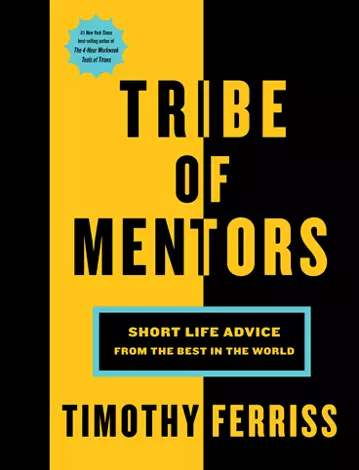
The book is a compilation of insights and advice from a diverse range of 130+ successful figures, including experts, celebrities, and thought leaders. Tim Ferriss conducts interviews, exploring themes of success, failure, personal habits, and life philosophies.
Tribe of Mentors is a book that you can revisit again and again, without the need to go through all the pages in a particular order. You can pick the topics you wish to explore. What Tim Ferriss does best is getting interesting insights with his seemingly simple questions, like what new belief or behavior has most improved your life in the last five years. The book does a great job of expanding one’s horizon and showcasing how diverse thinking can contribute to good results.
The most important takeaway to draw from the book is that it is made from a series of interviews that Tim has done. A book requires much more nuance and rigor than an average podcast, but Tim always had the end in mind while conducting the interviews. This translated into a higher focus on consistency and quality of conversation, which led to the right discussion that could be formatted into a book.
Some of the other key takeaways for me, from particular speakers, are as follows:
“Poets do not ‘fit’ into society, not because a place is denied them but because they do not take their ‘places’ seriously. They openly see its roles as theatrical, its styles as poses, its clothing costumes, its rules conventional, its crises arranged, its conflicts performed and its metaphysics ideological.”
― James P. Carse, Professor Emeritus of History and Literature of Religion at New York University, Author of Finite and Infinite Games
Author: Durreen Shahnaz
Reviewed by: Bijon Islam, Chief Executive Officer
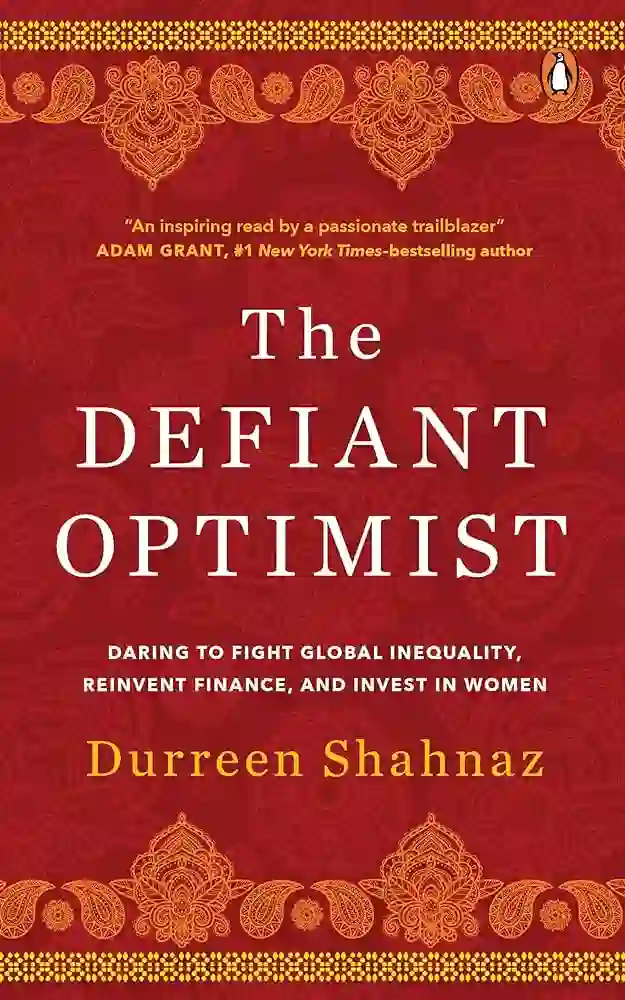
Memoir of Durreen Apa’s life and how her experiences have led to the founding of Impact & Investment Exchange (IIX). IIX leverages the financial system to provide a voice to women, underserved, and climate-vulnerable communities in the global market.
This book is an exceptional blend of how personal experiences can shape professional goals. A riveting read based on the adventures of Durreen Apa starting from the turmoil of the liberation war to graduate school, Wall Street, forming her own company, entering academia, and finally forming IIX. Must read if you are interested in how financial markets can create lasting impact.
Three key takeaways for me are:
People and planet are intertwined. We cannot save one without the other. We need to measure the impact and value of both in the financial markets.
Author: Shane Warne
Reviewed by: Miskat Arif, Business Consultant
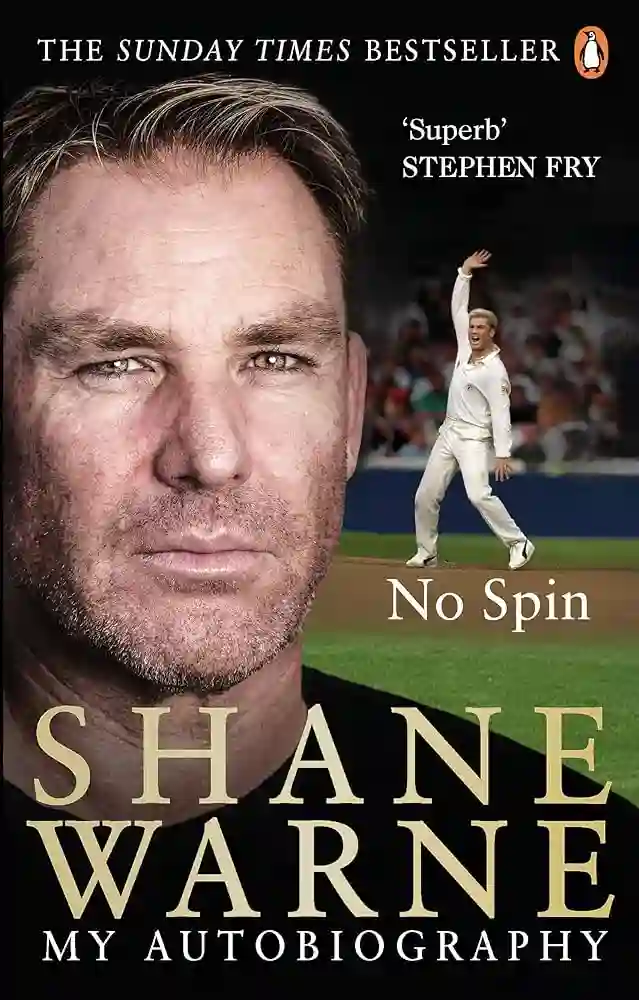
The book takes a look at the illustrious career of the legendary leg-spinner Shane Warne, from his debut in 1992 to his official retirement in 2013. Though it’s a memoir, it flawlessly shows how the cricketing world and its athletes live their lives through the ebbs and flows of the game.
The book isn’t a chronological retelling of what Shane Warne had lived through. Rather it’s a collection of distinct memories that he believed shaped his life more than anything else. It gives a glimpse into his thinking process – how he handled both his on-field and off-the-field lives. It feels more akin to listening to Shane Warne give an interview than reading a book.
Warne’s success stemmed not just from his natural talent but also from the relentless pursuit of improvement. He constantly adapted his bowling strategies and embraced new ways of thinking; which I believe is a valuable lesson for navigating an ever-changing world.
“Part of the art of bowling spin is to make the batsman think something special is happening when it isn’t.”
Author: Rory Sutherland
Reviewed by: Tariqur Rahman, Digital Marketing Specialist
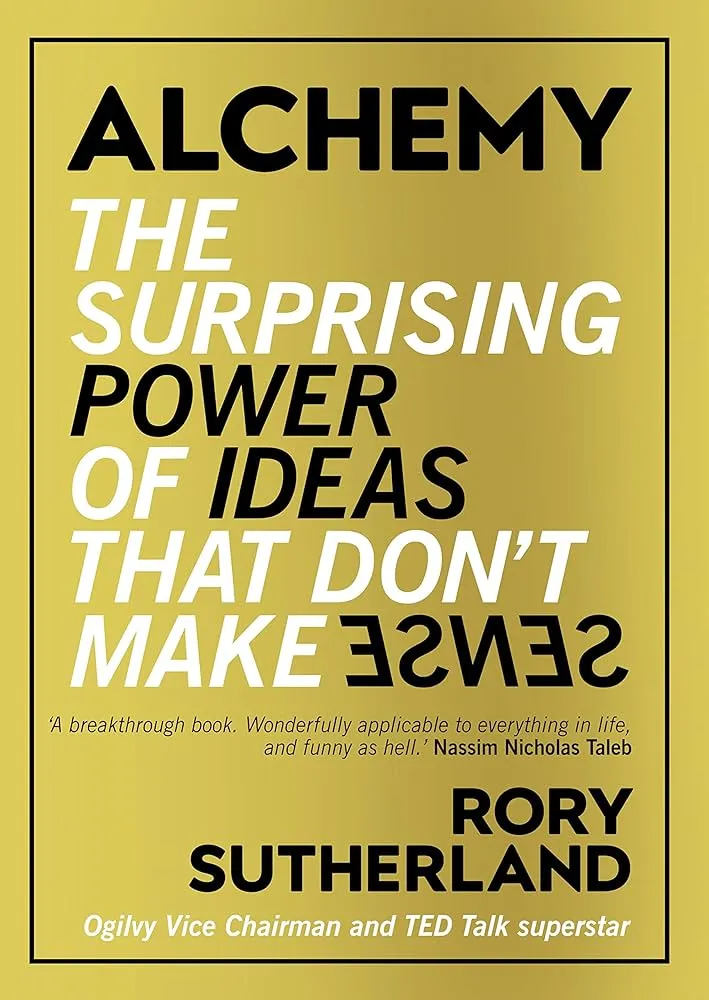
In a world where human behavior is not rational – on the flip side, it can often be inexplicably irrational – how is it that all decisions have come to be made on the basis of models that place logic and rationality on an inviolable pedestal? To make us rethink our decision-making models, Rory Sutherland straddles multiple domains in this book, cutting across marketing, psychology, behavioral economics, and sharp anecdotal insights to emphasize the importance of taking into account the quirks of our innate human nature and thinking of out-of-the-box solutions that may not look nice on paper but work wonderfully in practice.
Any book that challenges conventional wisdom often contains nuggets of wisdom and fresh insights that are often plain in sight but evade our attention due to a range of biases. This book presents the same promise and lives up to it perfectly. For instance, he talks about something called psychological moonshots – solutions that may not always look revolutionary or even particularly important in terms of conventional logic but actually have a tremendous impact. He identified the Uber map as a psychological moonshot. While it doesn’t really make your ride, food, or parcel appear any quicker but makes the waiting infinitely less frustrating. Similarly, Red Bull, perhaps the most easily identifiable energy drink brand in the world, made no sense on paper. The market research studies and consumer focus group studies all pointed towards failure. Yet it is one of the most successful brands today.
Some of my key takeaways from the book include: 1. Human nature hasn’t changed in a million years and is unlikely to fundamentally change in the next million years. So, as marketers, consultants, and decision-makers, it would pay to focus more on what will remain the same in an ever-changing world. 2. Solving real problems in the real world often requires out-of-the-box thinking that don’t make sense on paper. So no matter how robust we make our decision-making and forecasting models, it often pays to take into account the irrational nature of human behavior, the infinite number of unforeseen variables and black swan possibilities, and take ‘irrational’ decisions. 3. Brands are absolutely essential. Without recognizable brands, the market suffers as there is a lack of trust, loyalty, and no incentives to innovate.
“It is much easier to be fired for being illogical than it is for being unimaginative. The fatal issue is that logic always gets you to exactly the same place as your competitors.”
Author: Toni Morrison
Reviewed by: Raiysa Zuwairiyah, Business Analyst.
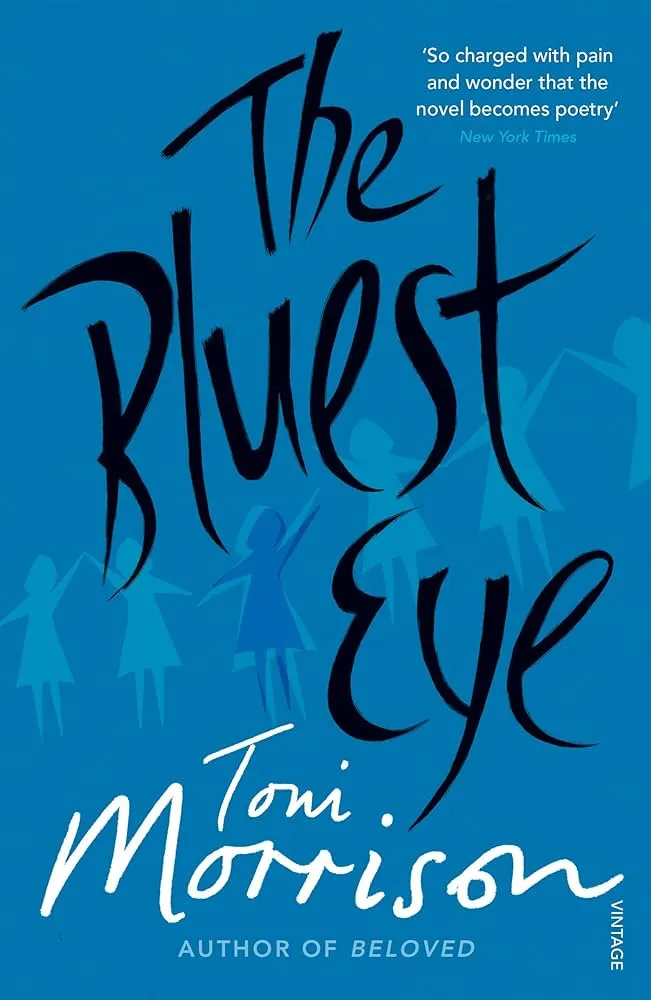
The book is set in 1941, in a small town in Ohio. Pecola Breedlove is a young girl, aged 9 or 10, of African American descent. She prays every night for her eyes to turn blue like the blonde, blue-eyed Americans who seem to have all the love and happiness and luxuries in the world. Pecola’s life takes a turn for the worse. The story has a cast of characters. Pecola, a young African American who lives with her parents, with an older brother who frequently runs away from home, in the abusive and dysfunctional Breedlove family. She is sent to live with the MacTeer family, who have two daughters, an overall well-adjusted and functional household. Then there are the Fishers, a white household.
The book was a very difficult read. I picked it up because one of my reading goals for 2023 was to read a banned book, and Toni Morrison is an award-winning author but this book landed in the American Library Association’s list of banned books. The book was cruel. Pecola is subject to cruelty from other kids around her, for being dark-skinned and “ugly”. This “ugliness” shapes her life and becomes more than just skin-deep. Wanting blue eyes, to her, is her path to wishing for a better life. The story delves into the lives of Pecola’s mother and father, who were in love once, but eventually their relationship deteriorated. Periods of unending and hopeless poverty, substance abuse and bitterness that grew into violence. The book is difficult to read because it feels hopeless, it’s crass at times, it has violence and abuse. But these things exist in the world whether we want to know about them or not. And I think that is what the author wanted to do, she wanted to talk about it.
The way this book depicts the subtleties and mental impact of fair-skinned privileges was at times relatable. For example, the main character Pecola admires a peer Maureen simply because Maureen is a pale-skinned black person. Colorism is integrated into society, within the African American community too some people get the ‘beauty’ privilege for being closer to the white beauty standards. While that’s one part of it, the book primarily paints a picture of the long-term mental effects of going through extreme poverty, how it manifests in the behavioral patterns of different people, how some deal with it through aspirations, some accept their position in life, and some act out in criminal ways. It delves into the racial injustices of everyday life, and the systemic inescapability of poverty. The cruelty, violence, and abuse in the book are difficult to read through because we do not want to face the realities of the darkness that exists in this world.
“All of our waste which we dumped on her and which she absorbed. And all of our beauty, which was hers first and which she gave to us. All of us–all who knew her–felt so wholesome after we cleaned ourselves on her. We were so beautiful when we stood astride her ugliness. Her simplicity decorated us, her guilt sanctified us, her pain made us glow with health and her awkwardness made us think we had a sense of humor. Her inarticulateness made us believe we were eloquent. Her poverty kept us generous. Even her waking dreams we used–to silence our nightmares. And she let us and thereby deserved our contempt. We honed our egos on her, padded our characters with her frailty, and yawned in the fantasy of our strength. And fantasy it was, for we were not strong, only aggressive; we were not free, merely licensed; we were not compassionate, we were polite; not good, but well behaved. We courted death to call ourselves brave and hid like thieves from life. We substituted good grammar for intellect; we switched habits to simulate maturity; we rearranged lies and called it truth, seeing in the new pattern of an old idea the Revelation and the Word.”
Our experts can help you solve your unique challenges
Stay up-to-date with our Thought Leadership and Insights